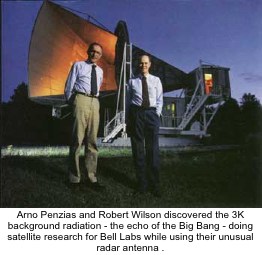| people had the privilege and were even paid to go off into a corner and look into nature apart from actually getting something done. So our support of basic, almost playful research has to continue. Too often it is not understood how this special, or, if you want to call it so, this ivory tower nature of science is crucial to any sort of progress. There are industrial labs that have this academic quality. The Bell Lab has had such a reputation, and many other industries have followed suit. But for the most part, industries can only afford to do research to get a limited domain of particular things done; they can't wander all over the map because they have noticed something that aroused their curiosity. There is another aspect of science that has caused much confusion, especially among the lay people and even, I think, among the scientists themselves, especially the social scientists. Scientists are now very often asked to predict what's going to happen. But I see no reason why they should be particularly good at doing so. The confusion comes from the parlance of science. We say that a crucial test experiment for a theory comes about because the theory 'predicts' something, and then you find it. But what these theories predict is not the future: they do not tell what's going to happen. When Einstein predicted that light bends as it goes by the sun, he didn't predict something that was going to happen in the future. It was something that was happening all the time'that always had happened and always will happen. Most crucial experiments, most predictions of theory, are not predictions of what's going to happen; they are predictions that if you look at the right time, in the right way, and with the right instruments, you will find what is happening. In this sense the theory helps you discover new things that are going on in nature. But the word prediction has led people to think that one's understanding of nature is going to let us know what actually will happen in the future. Science can tell what is happening, what has happened, often what |  | ||||
| can happen, and sometimes even what cannot happen because of the conservation of energy or some other very broad principle, but it hardly ever can tell, purely from understanding, what will happen. Yet a by-product of science has contributed to our ability to predict and therefore, indirectly, to our sense of security (people have always wanted oracles). In fact, most predictions are based on pattern recognition rather than on understanding. People could predict the tides long before they knew anything about gravity. Prediction is based primarily on observing patterns often enough that one can assume those patterns will repeat again and again. Such repeatability is the basis of our predictions, whether connected with childrearing, the mode of operation in committing a crime, the course of a disease, or the changes in business cycles. How does one observe patterns? One has to use one's senses, and it is science that has provided the raw material of natural phenomena that has enabled us to invent ways of extending the range and sensitivity of our senses. This extension of our senses involves our ability to see through things: it has to do with weather satellites, with the perfection of microscopes, telescopes, and infrared binoculars. All kinds of ways of seeing, | |||||